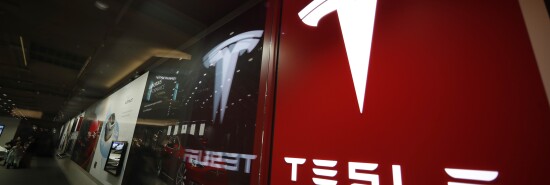
Tesla stock crash is an automobile asset bubble problem, not an Elon Musk problem
Tiana Lowe
Video Embed
After dropping out of the top 10 largest companies in the S&P 500, Tesla is set to close the year with the worst performance in the stock index. Tesla’s market cap, which peaked at $1.24 trillion last year, is down to $389 billion.
Despite Tesla bears pointing fingers at Elon Musk, the electric vehicle and clean energy company’s problem isn’t its belligerent billionaire founder. Sure, Musk has concerned Tesla investors by rolling back Chinese operations. And his unilateral takeover of Twitter has worried activist investors. But Tesla’s problem comes down to the fact it is one part car company, one part tech company.
REPUBLICANS DIVIDED ON FIGHT TO TAKE ON BIG TECH
Although the decadelong experiment in quantitative easing resulted in dangerously inflated asset bubbles across the board, no domain attracted reckless and artificially “free” money from investors like the tech sector. Tesla is just the worst-performing of the tech giants. But Meta is close behind, and Amazon, which nobody could argue has become less crucial in the post-COVID world, is down nearly 50% from the start of the year.
And there is a good reason for investors to sour on Tesla specifically, and that’s because of the abominable landscape for auto sales next year.
Second only to the housing market, the automobile industry is the consumer market most responsive to interest rate hikes. With the Federal Reserve bringing the federal funds rate to 4.5% by the end of this year, shoppers wishing to finance a car purchase are looking at rates into the double digits. The average auto-loan rate offered by banks in the third quarter of 2022 was over 8%.
At the same time, the real value of cars purchased during the pandemic is plummeting even more than usual not just due to standard depreciation, but also because of supply chain alleviation allowing a once-tight market to flood with new cars. And even though supply constraints will finally render new cars more affordable, rates may constrain potential buyers from entering the market for new cars.
But what about those used cars purchased for much more in 2021 than they would be right now? Well, the cars that rose the highest have the furthest to fall — especially Tesla, which suffered from supply shortages relative to demand even before the pandemic and has faced a massive, and probably deserved, correction.
Tesla, at the perfect intersection of the tech and automobile sectors, may have been one of the market’s big losers in 2022, but bears ought to consider one major way it will be insulated from the volatility of the year to come. Unlike his competitors, which relied on near-zero interest rates enabling sales to lower-income buyers, Musk has made Tesla a champion of the direct-to-consumer sales model. Musk may have market woes, but this one idiosyncrasy could insulate Tesla from further pain.
CLICK HERE TO READ MORE FROM THE WASHINGTON EXAMINER
